We wish all our readers a very happy Labour Day! What follows is a translation of the last seven pages of Krzysztof Karoń’s first book on the history of anti-culture – Historia Antykultury1 – which incorporates the author’s closing comments, a summary of the whole text, the conclusion and section titled “what is to be done?” Karoń has become one of the principle spokesmen in Poland’s intellectual Catholic and nationalist milieu, an active commentator on political and cultural affairs and an ardent critic of the postmodern status quo not only of his home country but the West at large. A so-called “working version” of the book was originally published in 2018, and a final text was re-released in 2019. It is not yet available in English. This section has been translated and offered to the Anglophone readership as a public service because it contains observations which we at the Sydney Traditionalist Forum believe to be intellectually provocative and therefore valuable in the world of “reaction”.
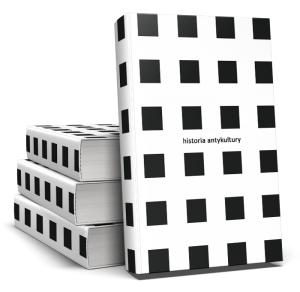 What will become immediately apparent to the reader is that Karoń’s worldview is couched in the tradition of Catholic Social Theory and therefore must be understood in that context. Be that as it may, it will be no less relevant to anyone who is concerned about the fate of Western Civilisation, no matter what his religious affiliation, if any. Karoń’s thesis is obviously hostile to Marxism and its metastasised offshoots in the world of far left identity politics; it is not sympathetic to neoliberalism and what he sees is a corrupted form of finance capitalism dominating the world through a doctrine of legitimised theft. Much to the chagrin of many self-described “rightists” of the libertarian persuasion, Karoń’s thesis is likewise critical of all ideologies which are based on materialist reductionism, or which conceive Man as an abstracted individual, or place abstracted “freedom” at the centre of a political theory that is little more than a form of anarchist idolatry. Instead, the author’s thesis places culture at the centre of his analysis of the history of Marxism, where the health of a culture is the ultimate determining factor for whether Man can or will enjoy real freedom, or whether he will be subordinated in a system that eradicates the conditions for the maintenance of human dignity under the banner of “liberation.”
What will become immediately apparent to the reader is that Karoń’s worldview is couched in the tradition of Catholic Social Theory and therefore must be understood in that context. Be that as it may, it will be no less relevant to anyone who is concerned about the fate of Western Civilisation, no matter what his religious affiliation, if any. Karoń’s thesis is obviously hostile to Marxism and its metastasised offshoots in the world of far left identity politics; it is not sympathetic to neoliberalism and what he sees is a corrupted form of finance capitalism dominating the world through a doctrine of legitimised theft. Much to the chagrin of many self-described “rightists” of the libertarian persuasion, Karoń’s thesis is likewise critical of all ideologies which are based on materialist reductionism, or which conceive Man as an abstracted individual, or place abstracted “freedom” at the centre of a political theory that is little more than a form of anarchist idolatry. Instead, the author’s thesis places culture at the centre of his analysis of the history of Marxism, where the health of a culture is the ultimate determining factor for whether Man can or will enjoy real freedom, or whether he will be subordinated in a system that eradicates the conditions for the maintenance of human dignity under the banner of “liberation.”
A few words on some technicalities of the translation: The translator has attempted to remain faithful to the author’s original sentence structure and phraseology. Consequently, some sentences may appear long, prolix, and convoluted. Some have had to be rearranged due to the requirements of English syntax; the intended meaning however has not been displaced. Some have had to be split, and these divisions are marked by a semicolon. Where words or terms have had to be translated by the use of an equivalent (i.e. where words are not translated literally) or were a word has had to be interpolated, this is recorded in the notations to the text. The author often makes use of terms that may not be familiar to Anglophone political discourse and also applies common terms that have a particular meaning in the context of the present debate in Catholic and nationalist circles in Poland. Accordingly, the translator has provided various explanatory digressions and commentaries that are contained in notations to the translated text. Often a term or phrase will need to be inserted into the translated text for the sake of clarification, and this insertion will appear in brackets [like so] whereas parentheses, where they appear in the translated text (like so) are in the author’s original work.
The History of Anticulture (pp 526 to 532)
Krzysztof Karoń
What is Contemporary Marxism?
I have introduced the reader to a tremendously abbreviated historical sketch of Marxism – an ideology dating back over a hundred and fifty years, which for the last fifty of those years has been shaping the mentality of contemporary societies within the civilised world. In conclusion I would like to raise two caveats.
The First Caveat:
The objective of this history of Marxism, which should be a component of Social Knowledge,2 is not to judge that ideology, but to present an intellectual model through which the consequences of any ideology can be verified. The model will be more informative as it references and relates to the reality which the reader experiences personally. The conclusion that an ideology must lead to economic catastrophe despite claiming to offer its adherents unrestrained freedom is not a value judgment, but a substantiated prediction of its unavoidable consequences. Only through the ability to make logical inferences and deductions from these substantiating facts will a person then be able make judgements and choices of his own.
Marxism is an ideology of destruction, but this does not suggest that it has not played a certain beneficial role in history. I see one of its benefits being how it has drawn attention to laissez fair capitalism’s defects, and contributed to the – unfortunately abandoned – search for a more rational version of market economics, where the threat of revolution drove capitalism away from the dominating principle of “sacred exploitation”.3 Moreover, the undoubted threat which Marxism posed to traditional culture should have at least theoretically put the culture on notice and provoked a defensive reaction against the threat of demoralisation which always accompanies said dominance.4 Furthermore, Marxism, and in particular the Marxism of the Frankfurt School, had to understand culture so as to be able to destroy it, in other words it had to understand the foundational mechanisms that give culture its civilisation-sustaining power. Unfortunately, culture has become susceptible to the destructive influence of Marxism, because it refuses to learn anything from it, about itself.5
The Second Caveat:
Throughout history, Marxism has gone through various transformations. Its contemporary manifestation may appear distant from its nineteenth century roots, and so it may seem doubtful whether it has preserved its ideological identity over time. For this reason I wish to emphasise that it is the [internal] characteristics6 which determines an ideology as Marxism, despite its changing name or slogans.
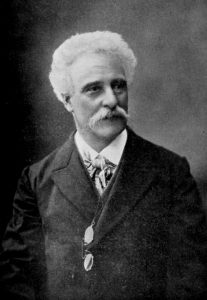
Paul Lafargue (b. 1842 d. 1911)
Marxism was the first ideology in human history in which the elite programme involved the destruction of a work ethic, denying society the self-discipline to create its own goods, and thus driving it toward dependency on a system whose power was based on the expropriation7 and redistribution of resources. The destruction of the work ethic was the conscious objective of Marxism from the publication of Paul Lafargue’s essay “The Right to be Lazy”8 [c. 1880] through to Herbert Marcuse’s “great rejection”9 [1964]. In contemporary Marxism, which I have termed Anticultural Marxism, the destruction of the work ethic is the unavoidable consequence of a critical pedagogy in which the problem of work and production is not addressed, instead the system in which real freedom10 does exist is deconstructed in the name of abstract freedom.11
A return to economic liberalism, and the growing popularity of ideological variants of so-called libertarianism, have contemporaneously developed with those left-wing quarters associated with modern Neomarxism. Their common characteristic is the emphasis on the problem of economic freedom, and the right to so-called negative freedom, which is a freedom from economic coercion. However, in neither of these ideologies is the problem of the [cultural] conditions necessary for the production of goods addressed, nor is the problem of pedagogy treated as an aspect of Social Knowledge, but wealth is simply taken for granted.12 Since the work ethic is not an innate aspect of the human condition and must therefore be cultivated and maintained through the [cultural] principles on which civic life is based, these ideologies must through their application lead to its [i.e. the work ethic’s] eventual disappearance.
Since the destruction of the work ethic is the method through which society is made dependent on powers that are organised around their prerogative to steal and redistribute goods, which we can conclude has been the objective of Marxism throughout history, then if this method has also become the element of other ideologies – principally among various currents of libertarianism13 – then those other ideologies’ unique identities have effectively been sublimated into the Marxist ideology by their assumption of Marxism’s socio-techniques.14
Conclusion
I believe that a careful study of this book will allow the reader to draw his own inferences and conclusions with respect to matters outlined in the following summary of its key sections:
Part One: Fundamental Concepts
Every Man15 naturally desires real freedom.16 Real freedom is achieved not just through a formal law which allows one to do as one pleases, but require the existence of conditions which allow the possibility of so acting. A condition of real freedom is the possession of goods which facilitate actions that accord with one’s desire. The state of possession these good is the state of the individual’s relative wealth. A condition for the creation of these goods is labour. Labour requires qualified and regulated exertion of effort, and therefore it requires Man to restrain his freedom to do as he pleases [i.e. to discipline his inherently lazy nature]. The biological imperative which inclines Man towards what is pleasant disinclines Man against labour immediately before the exertion of said effort.
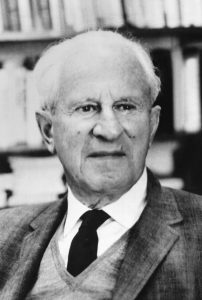
Herbert Marcuse (b. 1898 d. 1979)
By his nature, Man pursues those things that satisfy his desires in a manner that is least costly to him, and which will not be achieved at the expense of his own freedom; thus the natural method [i.e. default position] to obtain those goods necessary to achieve freedom [i.e. without exerting his own independent effort] is through the theft of goods produced by others, and thus the source of all wealth becomes the enslavement of one’s neighbour [i.e. through the exploitation of his labour]. This is why the history of Man is the history of enslavement, and defence against enslavement, and the most important factor in this struggle is the application of force. It is part of Man’s nature to experience a satisfaction that results from others acknowledging his personal value. The source of this satisfaction is the effect of his applied labour.17 Man is capable of motivating himself to the unpleasant exertion of effort which puts contemporaneous limits on his freedom to achieve this satisfaction.
The ability to independently and voluntarily exert this effort, with the objective of achieving this satisfaction, is a fundamental characteristic of the cultured Man. However, Man cannot master this ability on his own. Man’s weakness18 will have to be overcome through processes of pedagogy to achieve this mastery. This process of pedagogy requires that Man exert effort, which may be an immediately unpleasant prospect, but which allows Man to experience satisfaction. Pedagogy therefore requires the application of coercive strategies,19 but this coercion is not the same as violence.20 The most effective form of coercion is the positive authority.21
Part Two: Errata to the History of Culture
Man by his nature is primarily concerned with his own interests, and this does not change even for the Man who lives in a cultured community. Thus, under the right conditions, he will attempt to transfer the burden of effort required for the production of goods onto others, while reserving the right to benefit from the fruits of their labour. The history of Man is thus the history of organised theft, in which politicians create an organisational framework, while the priesthood and philosophers provided its [metapolitical] justification and so the right of one group to exploit the other through force was never questioned.22
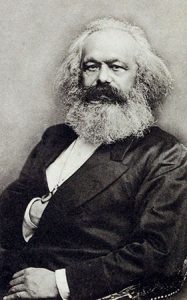
Karl Marx (b. 1818 d. 1883)
It was Catholicism that presented a new moral paradigm in which all individuals were acknowledged as having equal dignity23 vis-à-vis the institutional framework of the community which they constituted, and which was independent of individual will [i.e. not subject to the arbitrary exercise of the will of existing powers and authorities]. In the course of a millennium, Catholicism formulated a social model based on commonly shared values which were inferred from this new moral paradigm, creating an institution which was capable of imposing this model on the rest of society and opposing existing powers [i.e. those powers which relied on brute coercion to force their arbitrary will upon the exploited].
As an institution, the Church had at its disposal a hierarchical organisation and its estate, and thus the mechanisms and basis for its own power; it was therefore susceptible to also exercise that power for its own institutional interests, and was therefore likewise subject to the same temptations that lead to demoralisation [in the secular sphere]. This is why the Church experienced periods of decline throughout its history, when its hierarchs failed in their duties as moral advocates. However, the Church always manage to lift herself up from these crises, and it was to the credit of the organisational influence of Catholic morality that European culture assumed the ethos of solidarity, thus creating a civilisation capable of generating wealth and real freedom.
The only culture that has managed to create a civilisation capable of generating wealth and real freedom is the Catholic European culture, which combines Man’s instinctual (biological) motivations which are self-centred, with a morality that curbs the inclination to realise one’s own interest at the expense of the interest of one’s neighbour’s.
Part Three: The History of Anticulture
An economic system based on individualist Protestant liberal principles developed in the nineteenth century, one which led to extreme exploitation of a class that was divested of the fruits of its own labour. Marxism as well as the Catholic Social Movement, which was inspired by Catholic Social Theory, both formed a reaction to this exploitation. Marxism proposed a revolutionary programme of “theft from thieves”24 and a [consequent] vision of forced labour, whereas the Catholic Social Movement proposed a programme of social solidarity, which foresaw the cultural and civilizational advancement of exploited classes through the exertion of their own labour and the restraint on the powers of the privileged, exploitative class.25
The Catholic social programme addressed the concerns of the social sphere which was coalescing around the cause of defending its economic interests [i.e. against said exploitation] and so revolutionary Marxism did not prevail [i.e. in captivating the minds of the masses]; however this did not mean that Marxism surrendered its objectives. A new Marxist tactic arose in the Frankfurt Institute for Social Research.26 These new Marxists believed that power would be achieved through the destruction of the existing system’s foundations, or in other words, the destruction of a solidarist work ethic and the social units through which this ethos is reproduced. Their reasons went something like this:
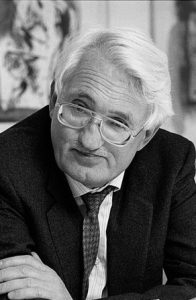
Jürgen Habermas, critical theorist of the Frankfurt School.
Marxists promised a wealth obtained through theft [and redistributed] to an unsophisticated proletariat, however as the proletariat became more educated and garnered its wealth through its own labours, this Marxist promise became less attractive.27 The consequence of the destruction of the work ethic is a society which is unable to labour or innovate according to its own devices,28 and is unable – even if it must – to produce its own goods. If such a society wants to take advantage of freedom, then the necessary goods [required for the conditions in which real freedom can be enjoyed] must be obtained through theft29 and therefore [such a society] must support a political ideology that promises freedom for free,30 or in other words, an organised system of exploitation in which a parasitical class of society will live at the expense of a labouring class.
The realization of this programme within a cultured society requires not only the destruction of the work ethic, but also the entire cultural system, and primarily those institutions that promote the morality of restraint, thus Catholicism and those institutions that enable its social activities; furthermore, not only is the community’s ability to engage in self-motivated labour thus eradicated, but also its capacity to reliably assess the reality in which it thus finds itself, as well the ability to foresee the consequences of its own decisions. These objectives are realised through the sexual revolution of Psychoanalytic Marxism and the mental revolution of Semantic Marxism.
The realisation of the New Marxist project does not eliminate its consequences, namely the system’s economic bankruptcy and the unavoidable resulting rebellion of the masses, so an apparatus of terror is prepared for the suppression of dissent. This is achieved through the institutional framework of the European Union31 as realised through the communist Ventotene Manifesto.32 Because the European federalist project has been stultified, its progress and completion require the liquidation of all cultural identities that comprise the effective oppositional force to its objectives, and this is achieved through the operation of “magical” Marxism – the ideology of gender.33 The pathological economic conditions which foster the parasitical mentality have created the neoliberal system of finance capitalism which produces empty money34 and this parasitical mentality likewise fosters a pedagogic system of critical education35 and its democratic mutations.36
What is to be Done?
The objective of this book is to present a perspective which will allow the reader to understand the most important [cultural] mechanisms involved in social life [i.e. civil society and the public square], and not to propose programmes of action; nevertheless it appears obvious that the interest of the reader who has perused it was not provoked by some impartial curiosity, but rather a concern about the state of European culture and the lack of any answer to the question whether there is a way out of the present dead end into which it has meandered.
I will confess in all honesty, that while collating materials as research for this book, I was optimistic and believed that the solution is simple and straightforward, in line with the principle that “the truth will set you free”; yet there exist a number of reasons why approaching this “truth” must be met with significant opposition in the public square.

Altiero Spinelli (b. 1907 d. 1986), author of the Ventotene Manifesto.
The first reason is the educational system and critical education, which are entirely dominated by the ideology of Anticulture and which continues – under evolving slogans – to raise a parasitical society. The second reason is that a substantial portion of society, which has been exposed, for at least the last thirty years, to Anticultural indoctrination, is already in essence part of this parasitical class, i.e. devoid of any work ethic and no longer qualified to engage in valuable labour. Most of that cohort which underwent schooling from the mid-90s,37 and which is presently raising the next generation,38 is part of this parasitical class. The third reason is the pathological economic and political system, which rewards39 parasitical behaviour.
The consequence of the combined effect of these three factors, results in [a situation] where millions of individuals pursue a parasitical existence at the expense of those who still create wealth, while lowering the productive class’ standard of living and thus leading to their demoralisation; parasitical elites that dominate the spheres of culture and the academy are strongly motivated by their own self-interest to further this social demoralisation, and atomised society is incapable of defending its own interests and therefore falls into a paralysing apathy, [while] the political class must continue to promise free freedom40 to secure the parasitical class’ electoral support at the ballot box.
It must be admitted that this system of communistic liberalism41 is not secured through physical terror but through popular support, and the secrets of its persistence lie not in its economic relationships but in the mentality of Man, such that the condition for any reforms42 requires the reconstruction of this deconstructed [i.e. through Critical Theory] mentality.
Unfortunately I doubt that this is possible in the adult cohort of society because, when considering the scale on which social reform must take place [and the necessarily profound depth of the reform’s impact for it to have lasting positive consequences], it is not knowledge (which can always be supplemented) that matters but the cultural habits that are acquired from infancy. The situation is worsened because society cannot reject the parasitical ethos because, since it has been denied its beneficial qualifications,43 such as rejection would leave it without the means to sustain itself.
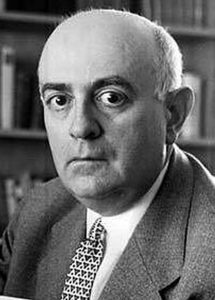
Theodor W. Adorno (b. 1903 d. 1969) of the Frankfurt School.
Nevertheless, I believe that there does exist a chance for staged reforms which may lead to the raising of subsequent generations of psychologically healthy people, but a condition for this reform is the creation of an alternative to the common and obligatory liberal-Marxist model of critical education which is considered to be a form of democratic pedagogy. The reasoning goes something like this:
Even if Social Knowledge is understood by the adult cohort of the population which appreciates the catastrophic consequences of critical education, rational arguments will nevertheless be ineffective in changing the mentality of this cohort and its Anticultural habits. Accordingly, they can be largely written off.44 However, I believe that those adults infected by the mentality of [abstracted] freedom are able to accept rational arguments and understand the consequences that critical education will have on their own children (and cause their civilisational degradation) and can therefore, by way of a sober calculation, decide to protect their own children from this Marxian liberalism.45
Of course, the conditions necessary for making such a decision is on the one hand the promotion of Social Knowledge, but this will principally require the creation of an alternative programme of cultural pedagogy which could be realised in the framework of the domestic or private institutional educational spheres, and also assumed by pedagogues employed in state affiliated educational institutions which are dominated by Anticulture. Since the omnipotent Anticultural system has had no real [i.e. effective] alternative and cannot therefore have its power objectively assessed, it is not inconceivable that those pedagogues may become convinced of its illegitimacy. Meanwhile, these pedagogues in schools and universities can presently engage in the realising their own alternative educational programmes which may be relevant to reforming society along these lines, but refuse to do so because they are themselves a product of the Anticultural system.
Only a society aware of its interests can drive those who create the current educational and pedagogical system to supplement and reform their knowledge base. No teacher or lecturer can prohibit a parent or student from raising important questions, and will sooner or later have to answer them.46 I hope that this book has enabled the reader to raise those relevant questions, because a question stated correctly contains within it the prelude to its own answer.
Endnotes:
- Krzysztof Karoń, Historia Antykultury ([self-published], 2019 [2018]), 543 pages with index.
- The term “social knowledge” means the individual’s orientational ability through which rational decisions can be made with respect to socio-political questions, where that orientation “encompass only facts and logically substantiated deductions which are free from the contamination of worldview [e.personal biases, inclinations or ideologies]”: Karoń, Historia Antykultury, op. cit. pp. 12-13. This orientation ability is more than just the desire or inclination to approach these questions objectively; it also includes a certain historical knowledge-base and understanding of the human condition according to Catholic Social Thought. For this reason, the term will be capitalised in the translation.
- The term “swietego wyzysku” appears in inverted commas in the original and is here translated literally. Karoń is indicating that the current economic order is based on the effective sacralisation of exploitation. What is meant by exploitation here will be explained later in this translated text. The reader is strongly encouraged to continue referring to these notes for the clarification of key terms and concepts.
- This sentence was infelicitously drafted in the original and left a great deal of room for misinterpretation; indeed the manner in which the original text appears did not seem to be logically consistent with the paragraph’s narrative. For the record, what follows is a transcript of this sentence in its original, parenthetically edited by the translator in a manner which is the presumed intention of the author (strikethrough is deleted and underlined text is interpolated). It is this text which forms the basis of this translation: “Po drugie, niewątpliwe zagrożenie jakim jest Marksizm dla tradycyjnej kultury, przynajmiej teoretycznie powinno [zabezpieczac te kulture uświadomić konieczność zabezpieczenia tej kultury] przed niebespieczeństwem gnuśności i demoralizacji, jaka zawsze wiąże się z dominacją.”
- Karoń is indicating that the cultural mainstream is either ignorant or naïve about the operations of Cultural Marxism, and is consequentially unaware of its own capacities and devices for resisting its onslaught. See further: “Is ‘Cultural Marxism’ a ‘Conspiracy Theory’ or a Political Reality?” SydneyTrads – Weblog of the Sydney Traditionalist Forum (5 June 2020).
- These characteristics include the ideology’s ultimate objectives and modus operandi, but not the policy platform, rhetorical style or medium of this-or-that countercultural trend or subversive movement.
- The author uses the more blunt term “theft” – in the original “grabież”. See further n 29 supra.
- Paul Lafargue, “Le Droit à la Paresse” which was originally published in L’Égalité (1880); this work has been republished in English as Paul Lafargue, The Right to Be Lazy and Other Stories Charles H. Kerr (trans.) (Charles H. Kerr Co., 1907). For a dissertation on this pamphlet, see: Zuzanna Ładyga, “The Right to Laziness” Sensus Historiae 22 No. 1 (2016) in which the author relies on the 1969 edition published through Solidarity Publications.
- Herbert Marcuse, The Great Rejection: Studies in the Ideology of Advanced Industrial Society (Beacon, 1964). For a dissertation which touches on the concept of the “great rejection”, see: Asaad Abdulwahab Abdulkarim, Waleed Massaher Hamad, Salah Ibrahim Hamadi, “Marcuse and Habermas’s Political Ideas” Tikrit Journal For Political Science No. 14 (2018).
- I.e. not abstract freedom, but freedom conceived in the real sense that one must exercise discipline and restraint if one wishes to invest in one’s future to achieve a meaningful level community self-sufficiency and personal autonomy.
- This paragraph, which appears on page 527 of the original work, is bolded and indented by the author for emphasis.
- What is meant by wealth being taken for granted is that economic liberalism, libertarianism and Marxism do not treat wealth as something contingent on particularist cultural factures, but rather see it as achieved through the application of ideological devices such as social engineering or economic policy reform.
- Krzysztof Karoń insists that the libertarian project will lead to the same destruction of the work ethic as under Marxism. The libertarian will be expected to vehemently object to this view. The view is however held on the grounds that libertarianism does not turn its attention to the cultural aspects on which the work ethic – as conceived in the Western Christian tradition – has been cultivated over centuries, and in fact undermines it by way of its inherently secularist, individualist and atomistic view of Man and his economy. In other words, it could be argued that the libertarian priors are derivative of a social framework inherited from another system which libertarian adherents would likely condemn for that other system’s refusal to idolise abstracted freedom as an ultimate good.
- The term “socio-technique” here means the social engineering of the human instinct for the purposes of reducing Man to dependence on a central executive authority.
- The original word used here is “człowiek” which is gender neutral, however the translation will use the capitalised “Man” to convey the same idea, without reliance on “humanity” or “human being”, which is considered clinical, anticultural and therefore dehumanising, and therefore not within the spirit of the original text.
- The reader is reminded that these conceptual terms must be understood through the theory of Catholic Social Teaching; its underlying theory explicitly rejects the contemporary liberal and libertarian abstraction of freedom as separated or isolated from the cultural framework in which is it experienced.
- In the original, “qualified labour”.
- In the original, “biological nature”, which inclines him towards laziness, and which forms the basis of the drive towards theft as the easiest way to obtain those goods necessary for the immediate satisfaction of wants.
- So as to overcome Man’s natural tendency towards laziness. The term used in the original is “przymus” which is here translated as “coercion”.
- What is meant by “violence” here is the illegitimate application of force, where the illegitimacy is grounded in the absence of a purpose connected to the maintenance or promotion of human dignity. This interpretation is based on the fact that the author is writing from the tradition of Catholic Social Thought. The translator was tempted to use the term “oppression” (instead of “violence”) to distinguish against the coercive strategies referred to by the author (see n 19 ibid.); oppression may be more readily understood in the sense of being the illegitimate application of force. However, Krzysztof Karoń has explicitly stated in other fora that all cultural cultivation is by definition a form of “oppression” in that it requires a disciplined course of conduct over time, e. this is essentially “oppressive” in the sense that it requires the application of force which may be at odds with the immediate desires of the child or student; or to put it more simply: culture is the application of discipline, and its transmission onto the next generation is therefore by definition coercive. The point being made is that “real freedom” is not the same as “abstracted freedom”, indeed, the attainment of “real freedom” (which has a cultural foundation) requires the rejection of the concept of “abstracted freedom” (or put simply anarchy) by applying justified coercion for the purpose of individual cultivation and, in the aggregate, the maintenance of civilisation. In contrast, the violence referred to here is a function of Anticulture, i.e. the reverse trajectory that leads to barbarism.
- I.e. authority understood in the Aristotelian sense as deriving from a transcendent order — not in the sense of a formal authority established under positivist law.
- What the author is driving at here is that the historical social order based on the exploitation of one group by another was taken for granted by the elites, both political and metapolitical, because it formed the very assumptions and preconceptions on which that social order justified its existence qua a social order.
- The term “dignity” is not used in the original – which would have been “godność” – but is strongly implied in the original text. It is necessary to import it here because a more literal English translation may seem otherwise obscure or unclear.
- This is a literal translation form the original text: “grabieży zagrabionego”. It is a figurative allusion to Marxist programmes of wealth redistribution from those who have obtained their wealth through the coercive harnessing of the neighbour’s exertions in labour for little or no consideration.
- Here “privilege” – in the original “przywilej” – is to be understood as the institutional right to exercise arbitrary power.
- I.e. what is popularly known as the “Frankfurt School” in contemporary metapolitical discourse.
- Literally: “they stopped supporting this Marxist promise.”
- Literally: “unable to labour adequately and creatively.”
- The author’s language may seem blunt, however what is being summarised here is that these goods – if unable to be independently produced through self-motivated labour – must be obtained through other means. One may object by suggesting that these other means may include trade. The author does not discount such a solution. However, the things that are traded for the necessary (i.e. desired) goods must themselves come from somewhere, namely, the voluntary labour of the individual or aggregate community. Hence, the author’s thesis stands that if the individual is not capable of creating anything of value by his own devices, not only will he need to obtain what is needed from another jurisdiction which possesses those goods and is willing to part with them for valuable consideration, but he will not be able to produce anything of worth which could be thus traded, and therefore the process through which those necessary or desired good could be obtained must logically involve a specie of theft. It is unfortunate that the author’s thesis may come across as, at best truncated or incomplete, or at worst contradictory or even “leftist” to the neoliberal or libertarian laisse fair’ist reader. However, the misunderstanding almost always arises from the fact that free market and capitalist critics of Krzysztof Karoń cannot break out of their own theoretical priors (which are, incidentally, based on the same materialist reductionism as the Marxist theory they purport to oppose) when approaching his work. The only way that this breaking-away can occur is for them to re-consider their understanding of “theft” in the context of Catholic Social Thought. This would naturally also lead them to a critique of usury and contemporary forms of “speculative” investments on the stock exchange. Sadly, public debates between the author and his detractors have illustrated this leap of imagination to be a near impossibility on their part, as was illustrated in 2017 during an exchange between Karoń on the one hand and both Sławomir Mentzen and Janusz Korwin-Mikke on the other, at the 7th “Piknik Prawicy”, Lądek Zdruj, Poland (23 September 2017).
- In the original: “wolność.”
- Mutatis mutandis, the same line of argumentation can be used vis-à-vis other transnational apparatuses which are dominated by Marxist and Marxist-derived pseudo-intellectual elites.
- Altiero Spinelli, Per un’Europa Libera e Unita. Progetto d’un Manifesto (June 1941) (a.k.a. Ventotene Manifesto). This document has been published in bilingual format as: Altiero Spinelli and Ernesto Rossi, Il Manifesto di Ventotene / The Ventotene Manifesto Eugenio Colorni (Preface) Laura Boldrini (Forward) Lucio Levi and Pier Virgilio Dastoli (Introduction) (Editrice Ultima Spiaggia, 2016).
- The term “magical” does not appear in inverted commas in the original text but this is implied in the tone of the thesis. Here, the author is conveying the absurdist nature of gender ideology. It is through this very absurdity that the normative cultural framework which enables a society to flourish is deconstructed, atomised, and thus rendered defenceless in the face of centralised and ideologically motivated authoritarianism, whose ultimate objective is not liberation through the eradication of objectively and naturally rooted identities (sexual, but it should also be added, ethnic), but the psychological disarming of the now-abstracted individual (via sexual confusion and deracination) prior to his economic and political enslavement.
- In the original “puste pieniądze”, which is reminiscent of Dr. E. Michael Jones’ critique of “barren metal”; see further: Barren Metal: The History of Capitalism as the Conflict Between Labor and Usury (Fidelity Press, 2014). This tome has been translated into Polish, in three volumes, as: Jałowy Pieniądz: Historia Kapitalizmu Jako Konfliktu Między Pracą a Lichwą Jan Przybył and Karolina Gawlik (trans.) (Wektory, 2015). Both Karoń and Jones are familiar authorities among Polish rightist Catholic circles and it is likely that Karoń is familiar with Jones’ work.
- This is a reference to postmodern Critical Theory.
- Again, a clarification is required here for the benefit of the fragile reader. The author is not disparaging democracy per se but the kind of levelling mass ochlocracy that leads to the lowest common denominator in the sphere of cultural life. This degenerating process is made possible through a corrupted idolatry of the abstracted individual, and the sacralisation of his sheer will, devoid as it has become in the modern world from a restraining morality which in the past was inferred from a transcendent authority. It is Karoń’s overall contention that the only extant system capable of reintroducing this social, political and economic paradigm is Catholic Social Thought.
- The author is writing in the context of the Polish educational system’s recent history of decay. The kind of anticultural indoctrination that he describes has been a feature of the Western educational system for some decades earlier. These observations are therefore more relevant and pressing to the Western, particularly Anglophone reader.
- In the original: “which is raising the next generation of Poles.”
- In the original: “premiuje”, which can translate literally to “gives primacy to”. “Favours” seems to be a more natural translation into English; the author’s intended meaning here is that the system fosters and encourages the kind of behaviour and value system being described as parasitical.
- See nn 10 and 16 infra (and in the translated text at n 30) for the description of “freedom for free”.
- Literally: “liberal communism”. The terminology must be augmented to convey the intended meaning.
- Literally: “positive changes.”
- In the original “pożytecznych kwalifikacji” by which the author means the culture (and work ethic) which allows the individual to postpone gratification and limit his own freedom with the aim of exerting effort in self-motivated labour geared towards future gain via the manufacture of goods necessary to sustain an independent and autonomous existence.
- In the original: “To jest – w skali społecznej – wykluczone.” The translation here is necessarily interpretive.
- This paragraph, which appears on page 532 of the original work, is bolded and indented by the author for emphasis.
- Ibid.
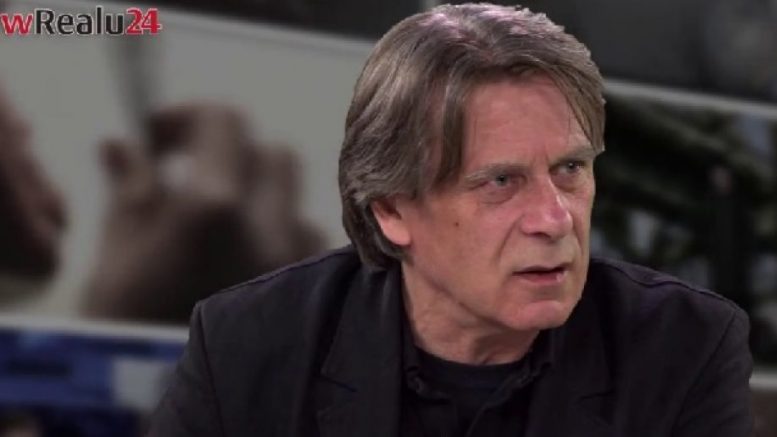


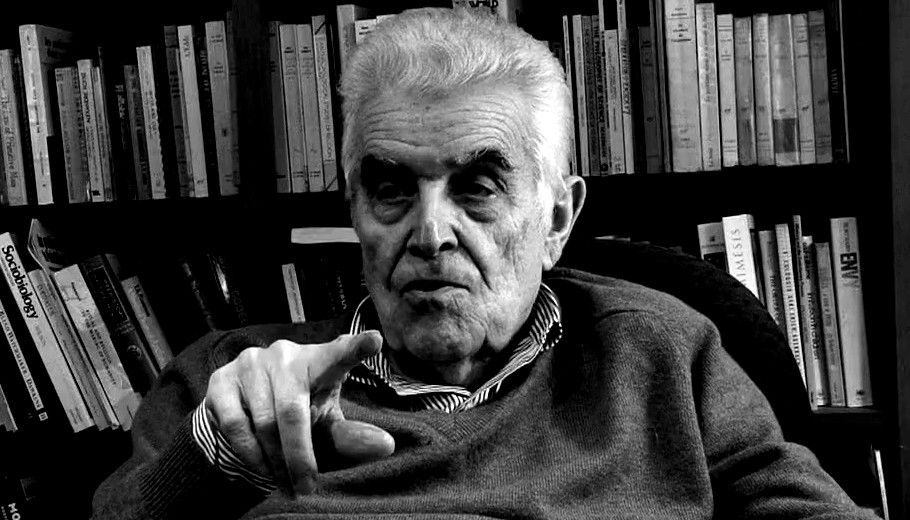

His book is now fully translated into English and German and costs less than $10
Thank you for the update. We highly recommend English readers to obtain a copy of the book.
here
https://historiaantykultury.pl/static/10